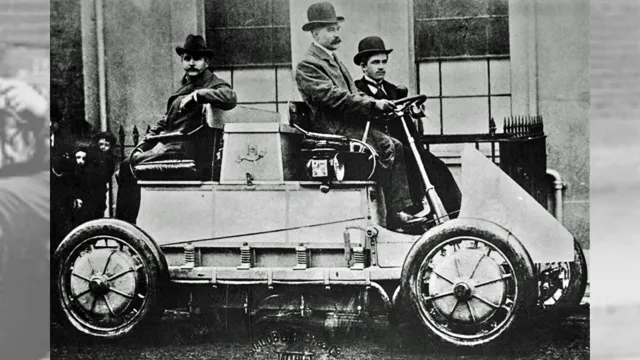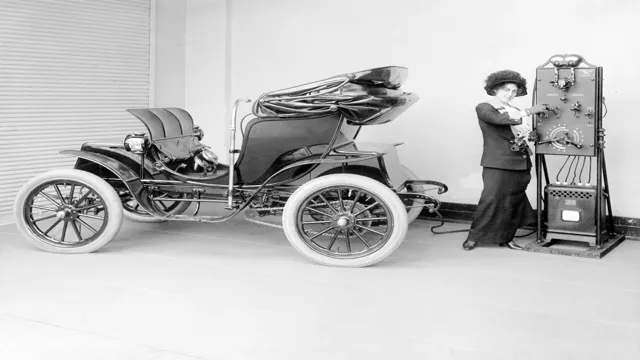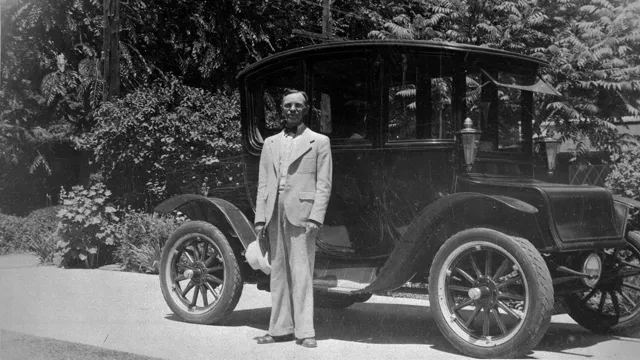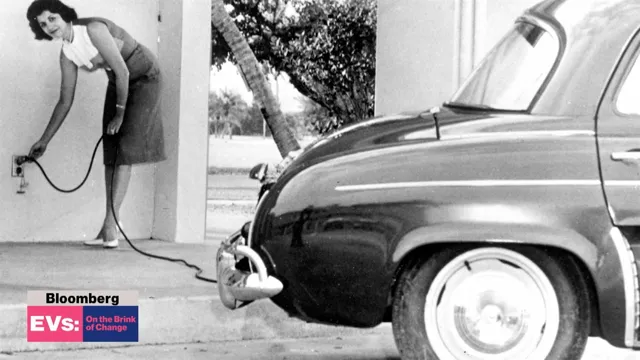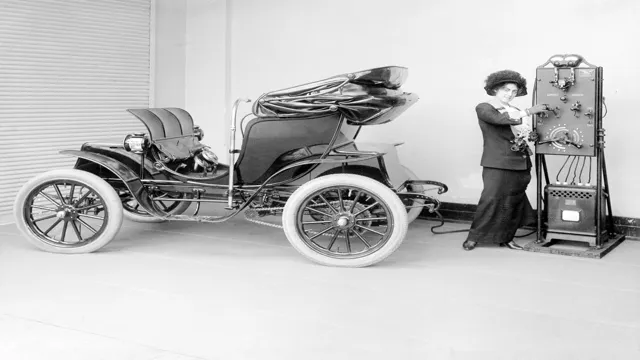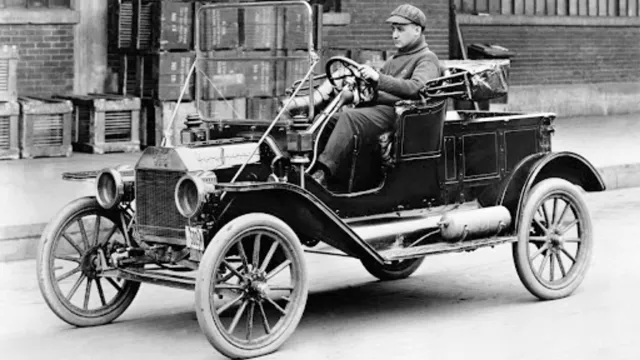Eco-Friendly Revolution: Uncovering the Fascinating History of the Electric Car
Electric cars have become an increasingly popular mode of transportation in recent years, but did you know that their history dates back over a century? That’s right, the first electric car was actually developed in the late 1800s, and since then, the technology has come a long way. In this blog post, we’ll take a deep dive into the history of electric cars and discover how they’ve evolved over time. From early prototypes to modern-day models, we’ll explore the advancements and setbacks that have shaped the development of these sustainable vehicles.
So buckle up and get ready to take a trip through time as we explore the fascinating history of electric cars.
The Early Years
The history of the electric car dates back to the early 19th century when inventors began developing crude electric vehicles. These cars used batteries to power an electric motor, and although they were slower and less powerful than traditional gas-powered cars, they were far less noisy and didn’t emit harmful gases. The first practical electric car was developed by Thomas Parker in 1884, and by the turn of the century, electric vehicles were often used as taxis in major cities.
However, the invention of the gasoline-powered engine led to a decline in electric car production, largely due to its greater range and ease of refueling. Despite this setback, advances in battery technology and growing concern over the environment have led to a resurgence in electric car production in recent years.
Inventions Before The 20th Century
Inventions before the 20th century have greatly influenced the way we live today, and many of these inventions were created during the early years. One of the earliest inventions was the wheel, which was invented around 3500 BCE. This was a game-changer as it enabled the transportation of goods over long distances.
Another invention during this time was the plow, which was significant in agriculture, making farming more efficient and increasing food production. Another vital invention was the printing press, invented by Johannes Gutenberg in the 15th century, which revolutionized the dissemination of knowledge and communication. These inventions were designed to make life easier and more efficient, allowing us to accomplish tasks more quickly and effectively.
Without these early inventions, we would not have the modern world we live in today.
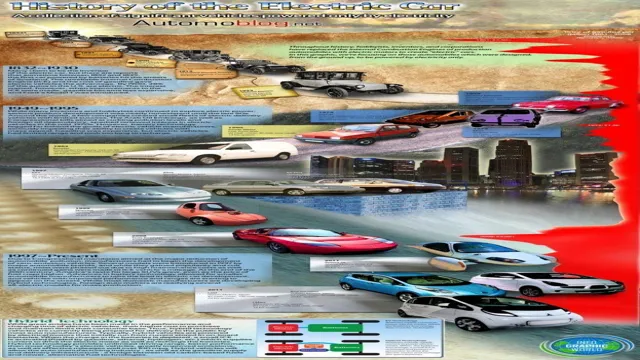
First Electric Car Innovations
The early years of electric cars were filled with exciting new innovations as inventors sought to create the perfect eco-friendly vehicle. The first electric car was created back in the 1830s, but it wasn’t until the late 1800s that they became more popular. Innovators like Thomas Davenport and Robert Anderson paved the way for electric vehicles, but it was Thomas Parker who made the most significant impact.
He designed the first production electric car in London in 1884, which quickly became popular for its smooth, quiet ride. Electric cars quickly gained popularity throughout the United States and Europe, and by the early 1900s, they were a common sight on city streets.
Electric Cars and the 20th Century
The history of the electric car goes back to the early 20th century. Some of the first mass-produced automobiles were electric vehicles, and they were widely regarded as a clean and efficient mode of transportation. However, the rise of the internal combustion engine and the discovery of oil reserves led to a shift away from electric cars.
By the mid-20th century, electric cars had become a niche market, with limited production and limited technology. But with the growing concern about the environment and climate change, electric cars are once again gaining popularity and becoming more accessible to the general public. With advances in technology and battery life, the electric car is becoming a practical and sustainable solution for reducing our carbon footprint and protecting the planet.
Rise and Fall of Electric Cars
Electric Cars The 20th century was marked by the rise and fall of electric cars. In the early 1900s, electric cars were considered popular alternatives to gasoline-powered vehicles. They were quieter, easier to drive, and required less maintenance.
However, the popularity of electric cars did not last long. The invention of the internal combustion engine made gasoline-powered cars more efficient and cheaper to produce. As a result, electric cars slowly faded away from the market, until they were all but forgotten.
Fast forward to the turn of the 21st century, and electric cars made a comeback. With environmental concerns escalating and the price of petrol increasing, many consumers began searching for a greener and more cost-effective alternative. Electric cars started to make waves again, with Tesla leading the charge in developing high-tech electric vehicles that can compete with traditional gasoline-powered cars.
Today, electric cars are more popular than ever. They offer a range of benefits, including reduced emissions, lower operating costs, and a smooth and quiet ride. However, the road to mainstream acceptance still has some bumps.
High prices and limited charging infrastructure can be barriers to entry for some consumers. Nonetheless, electric cars are poised to play a prominent role in the future of transportation, as countries around the world work towards cleaner and more sustainable energy options.
Impact of Internal Combustion Engine
One of the most significant impacts of the internal combustion engine is its role in the development of electric cars in the 20th century. As the negative externalities of traditional automobiles, such as pollution and reliance on non-renewable resources, became increasingly apparent, innovators began seeking alternative forms of transportation. Electric cars were first introduced in the early 1900s, but the limited range of their batteries and the ease of accessing fossil fuels prevented them from becoming the primary mode of transportation.
However, advancements in battery technology and a growing concern for the environment have sparked a renewed interest in electric cars. Tesla, a prominent electric car manufacturer, has popularized the use of electric power in cars and revolutionized the auto industry. With technology for electric cars constantly improving, it’s becoming increasingly clear that they have the potential to significantly decrease our dependence on fossil fuels and reduce the harmful effects of transportation on the environment.
Modern Electric Cars
Electric cars have come a long way since their invention in the 19th century. Prior to the 20th century, there were a few small attempts at electric cars, but it wasn’t until the early 1900s that they became more widespread. The limitations of early electric cars, such as their short range and limited speed, made them less practical for long-distance travel and they lost popularity in the mid-20th century.
However, in recent years there has been a resurgence of interest in electric cars due to concerns about environmental impact and the availability of more advanced battery technology. As a result, there are now a variety of affordable electric cars on the market that can travel long distances and are suitable for daily use. The trend toward environmentally conscious living has also brought about an increased demand for electric vehicles.
Electric cars offer significant benefits over traditional gas-powered cars, such as reduced emissions and lower operating costs. The future of electric cars looks promising, with advances in technology and the continued push for sustainability leading the way toward a cleaner, more sustainable world.
The Future of Electric Cars
The history of the electric car is a long and winding one, dating all the way back to the early 1800s. However, it wasn’t until the early 2000s that electric cars began gaining widespread attention. With the rise of concerns around climate change and the need to reduce carbon emissions, the popularity of electric cars has continued to surge.
In recent years, advancements in technology, including battery life and charging infrastructure, have made electric cars more accessible and practical for everyday use. As we move towards the future, it’s clear that electric cars will play a major role in the automotive industry. In fact, many experts predict that they will eventually overtake traditional gas-powered cars.
With the ability to reduce carbon emissions and dependence on fossil fuels, the future of electric cars looks bright.
Advancements in Technology
Electric Cars The future of electric cars is bright, and the advancements in technology are paving the way for a cleaner and more sustainable future. Electric cars have come a long way since their inception, and the latest models offer impressive features such as longer battery life, faster charging times, and better performance. Companies like Tesla, Volkswagen, and Nissan are leading the charge, and their electric vehicles are becoming increasingly popular among consumers.
Moreover, the infrastructure necessary to support electric cars is improving rapidly, with more charging stations being built across the world. As a result, it is becoming easier and more convenient to own an electric car. With their low emissions and impressive range, electric cars are poised to become the norm in the near future, and it’s exciting to see how these vehicles will evolve in the coming years.
EV Sales and Popularity
Electric Cars Electric cars are rapidly gaining popularity all over the world. Countries such as Norway, China, and the Netherlands have already started to phase out fossil fuel-powered vehicles in favor of electric cars. Electric cars’ increasing popularity is due to their numerous advantages, including their eco-friendliness, lower cost of operation, and a smoother driving experience.
Moreover, electric cars’ sales are on an upward spiral, with major automakers such as Tesla, Volkswagen, and Nissan, releasing new electric car models every year. The future of electric cars is bright and promising, with electric vehicles expected to dominate the automobile industry in the coming years. With the rise of electric cars’ sales, it is clear that electric cars are not just a passing fad but a vital part of the automobile industry’s future.
Conclusion
In the history of the electric car, we’ve seen the rise, fall, and rise again of a once innovative invention. From the earliest electric carriages to the sleek, modern electric vehicles of today, the electric car has come a long way. Despite setbacks, it has persevered through the ages and continued to evolve with advancements in technology.
And while it may have been overshadowed by the popularity of gas-powered vehicles for a time, the electric car has begun its triumphant return to the forefront of the automotive industry. So, let us charge forward with our electric dreams and plug in to a greener, brighter future!”
FAQs
When was the first electric car invented?
The first electric car was invented in 1837 by a Scottish inventor named Robert Anderson.
How long can electric cars travel on a single charge?
The distance an electric car can travel on a single charge varies depending on the make and model, but generally ranges from 100-300 miles.
How has the popularity of electric cars changed over time?
Electric cars were first popular in the late 1800s and early 1900s, but their popularity declined with the rise of gasoline-powered cars. In recent years, however, electric cars have become increasingly popular due to concerns about climate change and the availability of improved technology.
How do electric cars compare to gasoline-powered cars in terms of environmental impact?
Electric cars are generally considered to be more environmentally friendly than gasoline-powered cars, as they emit less greenhouse gases and pollutants. However, the environmental impact of electric cars depends largely on how the electricity used to power them is generated. If the electricity is generated from fossil fuels, then the environmental impact is comparable to that of gasoline-powered cars.
